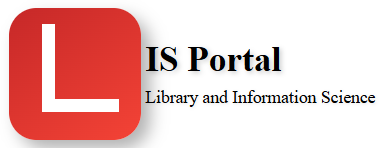RAJASTHAN PUBLIC SERVICE COMMISSION
SYLLABUS
LIBRARIAN GRADE-II
Pattern of Question Papers :
1 Objective Type Paper.
2 Maximum Marks : 300
3 Number of Questions : 150
4 Duration of Paper : Three Hours
5 All Questions carry equal marks.
6 There will be Negative Marking.
PART-A
UNIT-I
- Library as Social Institution
- Development of Libraries in India
- Different Types of Libraries Public
- Academic and Special.
- National Library of India.
- Five Laws of Library Science and their implications.
- Library Legislation- Need, Features and Efforts in India.
- Copyright Act,
- Delivery of Books Act,
- Intellectual Property Rights.
- Library Association: International and National- IFLA, ALA, ILA, IASLIC.
- Library Education in India. Raja Rammohan Roy Library Foundation , National Knowledge Commission.
UNIT-II
- Universe of Subjects- Definition and Purpose,
- Modes of Formation of Subjects.
- Definition, Need and Purpose of Library Classification.
- Species of Library Classification Schemes.
- Features of Colon Classification and Dewey Decimal Classification.
- Five Fundamental Categories, Common Isolates, Notation, Phase Relations.
- Principles of Helpful Sequence, Use of Devices in Colon Classification.
- Catalogue- Definition, Need and Purpose, Brief History and Development of Catalogue and Cataloging Codes.
- Physical Forms of Catalogue.
- Types of Library Catalogue.
- Subject Cataloging- Definition, Need and Purpose.
- Kinds of Catalogue Entries, Chain Procedure, Sears’ List of Subject Headings.
- Choice of Headings and its Rendering.
- Bibliographical Standards.
UNIT-III
- Types of Information Sources: Documentary and Non-documentary.
- Primary, Secondary and Tertiary.
- Evaluation of Information Sources.
- Need and Purpose of e-resources, e-books, online journals, databases.
- Concept and Need for Reference Services.
- Types-Long Range, Short Range,
- Qualification and Qualities of Reference Librarian.
- Concept and Need of Information Services- Document Delivery, Electronic Document Delivery,
- Abstracting and Indexing Services,
- Translation,
- Literature Search,
- Alerting Services-CAS, SDI.
- Library Networks and Resources Sharing: Concept and Purpose.
- National and International Initiatives- INFLIBNET, DELNET, OCLC.
UNIT-IV
- Management: Concept, Definition and Scope.
- Functions and Principles of Management in Libraries.
- Library Operations – Selection and Acquisition,
- Collection Building and Development,
- Technical Processing,
- Circulation- Charging and Discharging Systems,
- Serial Control,
- Stock Verification,
- Weeding out.
- Library Authority and Committee.
- Library Personnel- Job Description,
- Job Analysis,
- Job Satisfaction,
- Job Evaluation.
- Financial Management- Sources of Finance,
- Financial Estimation.
- Budgeting Techniques.
- Library Building.
- Library Rules.
- Statistics.
- Annual Report.
- Maintenance,
- Conservation and Preservation of Library Matarial.
UNIT –V
- Information Technology – Definition, Need, Scope, Objectives and Components.
- Historical Development, Generation and Classification of Computers.
- Components, Peripherals, Input, Output and Storage Devices.
- Softwares – System and Application Softwares.
- Operating Systems – Single and Multi-user,
- Basic features of MS-DOS, MS- Windows
- Library Automation: Definition, Need and Purpose;
- Application of Computers to Library Operations.
- Basic Features / Modules of Library and Information Management Software: WINISIS/ SOUL2.0
- General Application Software: MS Word, MS Excel, MS PowerPoint.
- Telecommunications – Need, Purpose and Objectives
- Communication Tools and Techniques: E-mail, Teleconferencing/Video Conferencing, Web Portals, Social Networking Tools.
- Network – Concept, Components, Topologies and Types (LAN, WAN, MAN, VPN)
- Internet – Concept, Definition, Origin, Need and Purpose; Internet Services.
(100 Questions)
PART-B
Language
- Literature & Scholarship : Dialects of Rajasthani language,
- literature of Rajasthani language and folk literature.
- Various language and literary academies of state government.
- Higher education institutions and research establishments of state and center government in Rajasthan.
- Religious Life: Religious communities, saints and sects in Rajasthan.
- Folk deities of Rajasthan.
- Performing Art: Classical music and classical dance, folk music & instruments; Folk dances & drama.
- Visual Art: Handicrafts of Rajasthan, historical architecture – forts, palaces and temples.
- Tradition: Costume and ornaments, social customs of Rajasthan.
- Festival and fairs in Rajasthan.
- Various tribes and their customs.
- Historical sites and tourist places.
Geography of Rajasthan
- Broad physical features- Mountains, Plateaus, Plains & Desert;
- Major rivers and lakes;
- Climate and Agro-climatic regions;
- Major soil types and distribution;
- Major forest types and distribution;
- Demographic characteristics;
- Desertification, Droughts & Floods,
- Deforestation, Environmental Pollution and Ecological Concerns.
General English
- Articles and Determiners,
- Prepositions,
- Modals,
- Tenses,
- Change of Voice – from Active to Passive & vice – versa,
- Change of Narration – from Direct to Indirect & vice – versa,
- Synonyms, Antonyms,
- Phrasal Verbs,
- Translation of sentences from Hindi to English
General Hindi
- संधि,
- उपसर्ग,
- प्रत्यय,
- पर्या यवाची शब्द,
- विलोम शब्द,
- समश्र ुत भिन्नार्थक शब्द,
- शब्द श ुद्धि,
- वाक्य श ुद्धि,
- वाक्यांश के लिए उपयुक्त शब्द,
- मुहावरे,
- ला ेका ेक्ति,
- अंग्र ेजी वाक्य का हि ंदी-अनुवाद।
(50 Questions)
